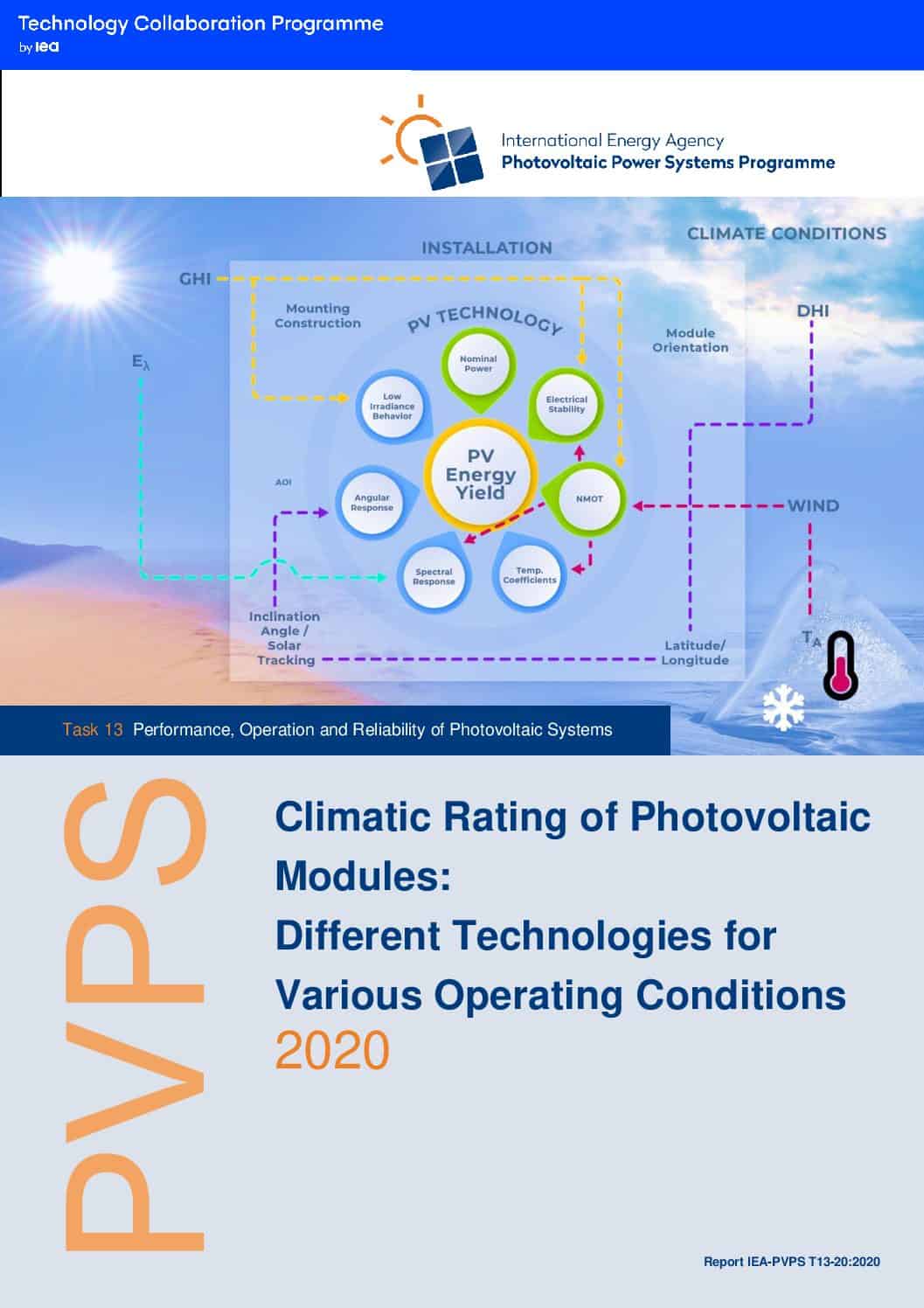The photovoltaic (PV) energy rating is related to the energy yield performance of a PV module. Unlike the power rating, which is only related to the performance at a single operating point at 25°C, 1000 W/m2, and AM1.5 spectrum (Standard Test Conditions, STC), the energy rating considers several characteristics of the PV module that affect the amount of energy produced: a) low irradiation behaviour b) temperature behaviour c) spectral response and d) angular response. These characteristics are also a function of climate and location conditions, vary over time, and differ widely from the STC. For the PV industry and its market players, accurate information on how much energy PV modules and systems can generate is crucial, and even more relevant than the power rating. In recent times the photovoltaic industry is moving from thinking about power (watt-peak) to thinking about energy (kWh), giving greater importance to the energy rating.
As a whole, this report is a compendium of the current status of energy rating, ranging from input data on technologies (whether measured in the laboratory or outdoors) and on climate, to the description and evaluation of existing methods (IEC 61853 and from other solar re-search institutes). It also opens the discussion on the application of these methods in new technologies such as bifacial modules, BIPV and coloured PV, competitions on method uncertainties and evaluation at system level.
